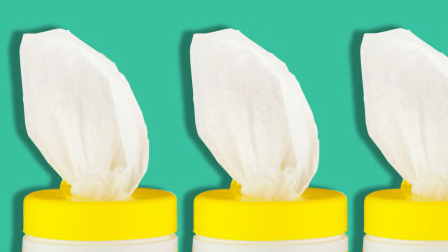How to Beat a Bad Cold or the Flu
Here, remedies to help ease your aches, coughing, and fever—and sometimes even shorten a viral infection

Upper respiratory infections such as the common cold and flu can certainly make you miserable. What works to help you feel better . . . faster?
Some over-the-counter drugs you may have turned to when you were younger may be less useful or appropriate now, says Rebecca Masutani, MD, an assistant professor at the Icahn School of Medicine at Mount Sinai Brookdale Department of Geriatrics & Palliative Medicine in New York City. "Oftentimes they don’t work and may even carry health risks."
In fact, according to a Food and Drug Administration advisory panel, there’s insufficient evidence that the recommended dose of oral phenylephrine (used in many cough and cold meds as a decongestant) is effective. Here’s a look at which OTC and home remedies can really help ease your symptoms—plus when to consider prescription drugs and what’s best to skip altogether.
Home Remedies That Work
Some of the safest and most effective cold remedies can be found in your own home, Masutani says. These include:
Honey: This is often recommended for coughs in children, but it works for adults, too, says Michael Hochman, MD, an internist in Los Angeles. A review of studies published in 2020 in the British Medical Journal backs that up. Try adding a spoonful to a cup of warm herbal tea, Masutani says. The liquid can help hydrate you and ease congestion, while the honey can ease coughing and soothe throat pain. (If you have diabetes or prediabetes, Hochman advises talking to your doctor first.)
OTC Meds to Consider
While there’s no one-size-fits-all treatment approach, you might want to have the following on hand:
Acetaminophen: This can help relieve fever, headache, and muscle aches, Masutani says. It’s safe for most older adults to take up to 3,000 mg a day.
Saline nasal rinses: In general, these are safe and work well to flush mucus out of the nasal cavity, according to Hochman. You can use them at least several times a day. A similar option is a neti pot.
Nasal sprays: If saline rinses don’t do the trick, consider an OTC nasal decongestant such as oxymetazoline (Afrin and generic), but only for a couple days, says Melissa Green, PharmD, a geriatric pharmacist at the University of Utah Hospital in Salt Lake City. After more than 72 hours, these can cause rebound congestion because they affect how blood vessels work. Also, check with your doctor or pharmacist ahead of time if you have heart-related conditions.
Expectorants: Guaifenesin (Mucinex and generic) thins mucus and makes it easier for you to cough it up. While this can be helpful, drinking plenty of fluids may have the same effect, according to Green.
Cough drops: They can help relieve sore throat pain and quell a dry cough, Boling says. Ingredients that end with "caine" (like benzocaine) temporarily numb the throat.
Older Adults: Think Twice About These Ingredients
Older adults should avoid or be cautious about certain ingredients often found in combination cough and cold meds, Green says. Combo drugs may also contain acetaminophen. So if you take acetaminophen on its own and add a multi-ingredient med, you might get too much.
Pseudoephedrine and phenylephrine: Despite the FDA’s finding about phenylephrine, you may still find products with it on store shelves. These decongestants aren’t advised for older adults because they can hike heart rate and blood pressure, Green says.
Diphenhydramine: This antihistamine (Benadryl and generic) is often said to help with sneezing and a runny nose, Masutani says. But it can cause side effects like dizziness and drowsiness.
Dextromethorphan: Green says that with older adults, "we’ve seen cases of dizziness and confusion" in those using this cough suppressant, which is found in Delsym, Robitussin, and other products. "It seems to impact older adults differently from younger ones."
Nonsteroidal anti-inflammatories: Ibuprofen (Advil, Motrin, and generic) and naproxen (Aleve and generic) can ease pain and fever but carry a higher risk of gastrointestinal bleeding in older adults.
What About Supplements?
Certain supplements are said by some to help prevent or ease the symptoms of respiratory infections. But can these over-the-counter products really help?
Products such as echinacea, elderberry, and vitamin C may be popular, but the best evidence may be for supplements of zinc.
"There’s some evidence that if you take at least 75 mg a day of zinc lozenges starting from the day you begin to experience symptoms, it can shorten the time you feel sick," Green says.
But you’ll want to be aware that zinc lozenges can cause unpleasant side effects, such as stomach upset or a bad or altered taste in the mouth.
If you’re considering taking zinc supplements, Green suggests that you talk with your doctor first. High levels of zinc may interfere with medications, including some antibiotics.
When You Need a Prescription
Because older adults are more likely to develop complications from the flu or COVID-19, if you have a cough, fever, and nasal congestion, see your doctor or go to an urgent care clinic for flu and COVID-19 testing, Schaffner says. If you’re positive for either, you should get a prescription for an antiviral drug.
"Antivirals reduce the chance that your milder illness will go on to become more severe," he says. "The goal is to keep you out of the hospital, and possibly even slightly shorten the duration of the time that you’re sick."
For the flu, a prescription antiviral such as oseltamivir (Tamiflu and generic) taken for five days can help you recover faster. And for COVID-19, your doctor may recommend the antivirals nirmatrelvir and ritonavir (taken together as the medication Paxlovid). A 2022 review published in the journal Clinical Infectious Disease found that it reduced the risk of severe COVID-19 by 46 percent.
"I recommend it for most older adults because it will help them keep you out of the emergency room," Schaffner says.
When to See Your Doctor
It’s a good idea to see your healthcare provider anytime you develop symptoms of a respiratory infection, to rule out the flu or COVID-19, says Ronan Factora, MD, a geriatrician at the Cleveland Clinic. And after that initial visit, you’ll want to get in touch with your doctor again—and do so right away—if you experience any of the following problems:
- Trouble breathing or breathing that’s unusually rapid.
- Dehydration. (Dark urine may be a sign.)
- A fever that lasts for more than four days.
- Other symptoms, such as coughing or fever, that last more than 10 days without getting significantly better.
- Symptoms that improve but then return or worsen.
- The worsening of a chronic medical condition.
Editor’s Note: This article also appeared in the March 2024 issue of Consumer Reports On Health.




















